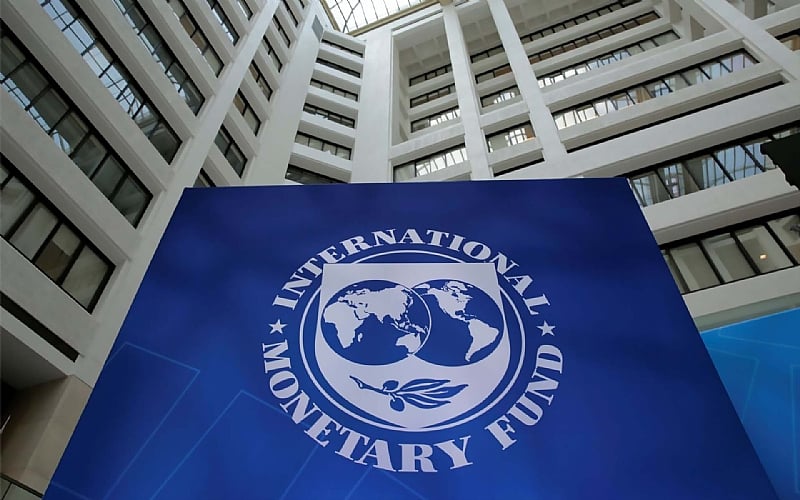The recent counsel from the International Monetary Fund (IMF) to the Bank of Ghana, urging a reduction in interventions within the foreign exchange market, has sparked considerable apprehension. This advice resonates with a pattern of IMF recommendations—tight monetary policies, currency controls, and austerity measures—that have historically burdened ordinary citizens more than they have benefited the nation. The concern stems from the potential for these policies to exacerbate existing economic hardships and undermine the Bank of Ghana’s ability to stabilize the cedi and manage inflation.
Over the past four years, under an IMF-supported program during the New Patriotic Party (NPP) administration, Ghanaians have experienced significant economic hardship. Skyrocketing inflation has eroded purchasing power, while the cedi’s depreciation has increased the cost of imported goods, further fueling inflation. Job losses have become widespread, and the overall cost of living has risen dramatically, placing immense pressure on households. This period has seen the Ghanaian state seemingly relegated to a passive role in its own economy, while the IMF dictates economic policy under the guise of “reforms.” This raises serious questions about the efficacy and appropriateness of the IMF’s approach in the Ghanaian context.
The IMF’s recommendation to limit forex market interventions appears particularly counterintuitive. A central bank’s primary mandate is to maintain price stability and manage the national currency. Restricting the Bank of Ghana’s ability to intervene in the forex market would essentially tie its hands, leaving it powerless to prevent further cedi depreciation. This would have cascading negative effects: importers would face higher costs, leading to further price increases for consumers; businesses reliant on imported inputs would struggle; and overall confidence in the economy would erode, potentially triggering capital flight.
To address the underlying economic challenges and mitigate the negative consequences of IMF-prescribed policies, several alternative solutions are proposed. First and foremost, the IMF must move away from a one-size-fits-all approach and adopt country-specific solutions that consider the unique characteristics of each economy. Ghana’s large informal sector, dependence on imports, and social vulnerabilities require flexible policies, not the rigid frameworks typically imposed by the IMF. A nuanced understanding of these factors is crucial for developing effective and sustainable economic policies.
Second, Ghana should prioritize investments in domestic production, spanning agriculture and local manufacturing. By boosting domestic production of goods currently imported, Ghana can reduce its reliance on foreign currency, thus lessening the demand pressure on the cedi. This import substitution strategy would not only strengthen the local economy but also create jobs and improve the country’s trade balance.
Third, diversifying exports is critical for bolstering foreign exchange earnings. Ghana should focus on developing value-added exports in sectors such as agro-processing, services, and tourism. This diversification would reduce the country’s vulnerability to fluctuations in commodity prices and create more stable sources of foreign exchange. Furthermore, investing in these sectors would stimulate economic growth and create employment opportunities.
Fourth, the government must exercise fiscal discipline and cap excessive borrowing, particularly in foreign currencies. Excessive foreign currency borrowing increases pressure on foreign reserves and contributes to exchange rate volatility. A prudent fiscal policy, coupled with effective debt management, is essential for maintaining macroeconomic stability.
Finally, Ghana should establish a buffer fund specifically designed for forex interventions during periods of economic crisis. This fund would provide a readily available resource to stabilize the cedi without relying heavily on IMF signals or conditions. This would empower the Bank of Ghana to act proactively and effectively in managing the exchange rate and protecting the economy from external shocks.
The IMF, while playing a role in providing financial assistance and technical expertise, must not inadvertently exacerbate Ghana’s economic woes. The institution needs to re-evaluate its approach and prioritize the well-being of the Ghanaian people over abstract economic models. Imposing policies designed in Washington without considering the unique circumstances and vulnerabilities of the Ghanaian economy can have devastating consequences for ordinary citizens. It is time for a shift in perspective, one that recognizes the human cost of economic policies and prioritizes sustainable and inclusive growth that benefits all Ghanaians, not just a select few. Ghanaians are weary of bearing the brunt of policies formulated elsewhere but felt acutely at home. They deserve economic policies that address their needs and aspirations, not policies that perpetuate hardship and undermine their economic well-being.


